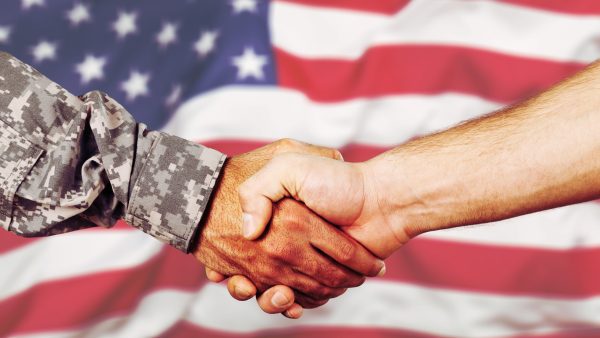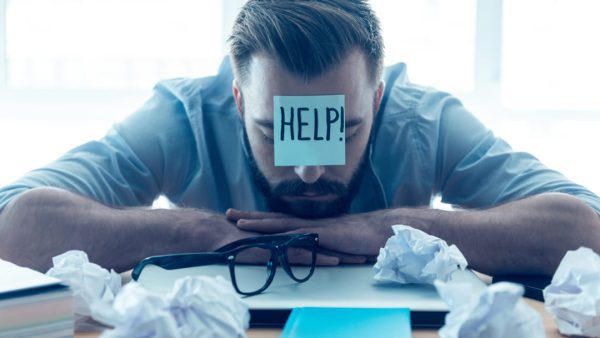Looking for Expert-Level VA Claim Answers?📱Call Us Now! 737-295-2226
Self-Care Tips for Veterans
Depression, anxiety, and PTSD are extremely common for veterans. In one study, the VA found that nearly 25% of post-9/11 veterans deal with mental health issues ranging from depression to PTSD.
In this post, we’re highlighting the importance of self-care to soothe these conditions and make them easier to live with. Each of us has the power to impact our well-being through our own choices and by investing in ourselves.
Traditional treatments for mental health conditions are medications and therapy. While these treatments can be beneficial to veterans, there are other options. Self-care practices can give you the power to feel better through your own efforts and can also enhance the effectiveness of medical treatments.
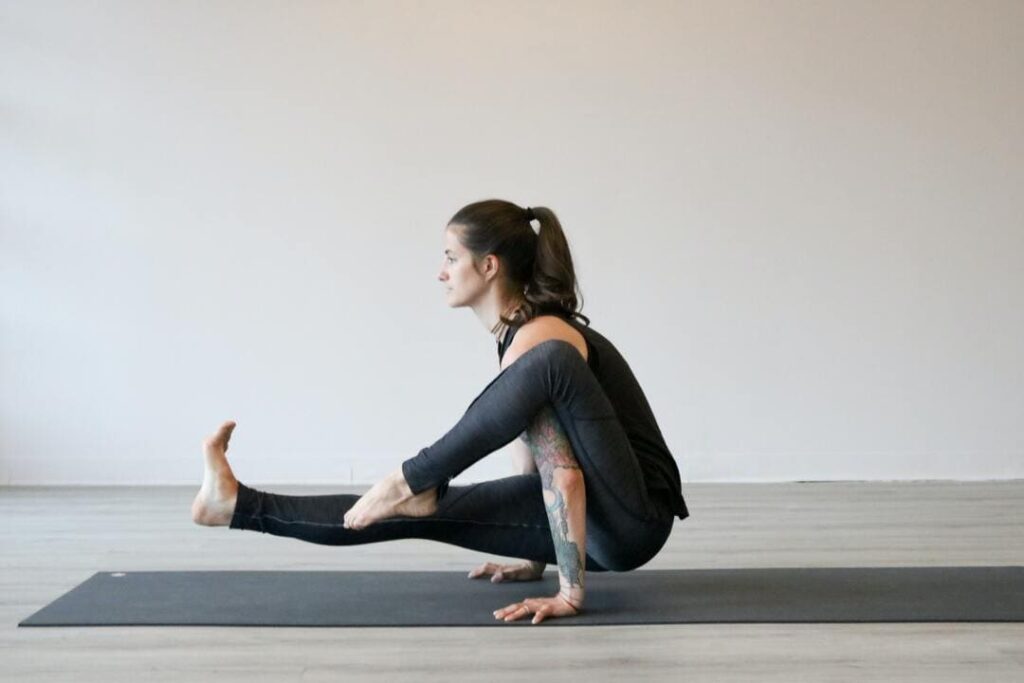
Although sometimes thought of as something we do to pamper ourselves, self-care is essential to our well-being. Self-care is about developing the skills and support to improve mental health. Veterans who make self-care a priority can better cope with stress, overcome challenges, and achieve goals.
The VA Whole Health program was recently launched to help veterans improve their health and well-being.
The program offers a comprehensive approach to self-care, including options for nutrition, exercise, stress management, and more. You can choose from various self-care courses and resources, and the program is available in person and online.
Read on to learn more about seven of the most popular evidence-based alternative self-care options available to veterans and how you can access these resources through the Whole Health program.
Table of Contents
Exercise
Exercise is an excellent self-care activity because it has multiple benefits for our physical and mental health. Exercise has been shown to boost neurotransmitters in the brain, improving mood and alleviating symptoms of these conditions. Additionally, exercise can help to enhance the quality of sleep and increase energy levels.
There are many different ways to get exercise. It may be helpful to think of exercise simply as “movement” or “opportunities to move your body.” Some people prefer to go to the gym, while others enjoy outdoor activities like hiking or biking. Remember that playing the yard with your kids or dancing also counts! No matter what you choose to do, the important thing is to find an activity that you enjoy. As the adage goes, the best exercise is the one that you’ll do.
The VA offers several tools to help you get motivated to exercise and create an exercise plan that works.
VA MOVE! Program
The VA’s MOVE! Weight Management Program offers resources on healthy eating and physical activity. It provides education and support for making lifestyle changes over a 19-week program.
There are also exercise classes provided at VA medical centers across the country. These classes offer the opportunity to socialize and get moving in a supportive environment with other veterans. You can enroll in MOVE! at your local VA Medical Center or Community-based Outpatient Clinic (CBOC).
The VA Whole Health program also offers access to self-paced online exercise programs, including tai chi and yoga. Even moderate exercise can have a positive impact on your mental health. So don’t be afraid to get started and find a movement practice that works for you!
Healthy Eating
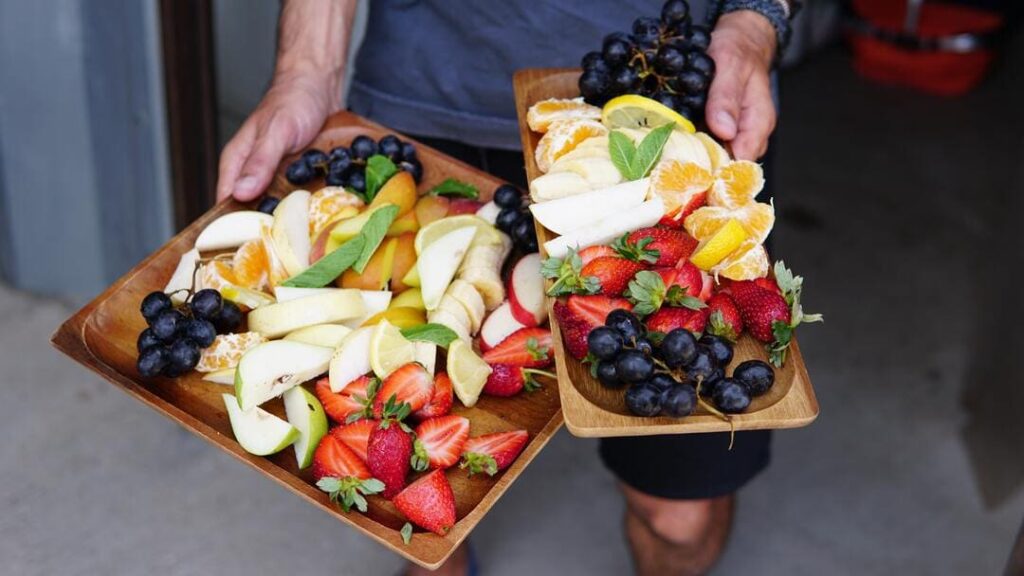
Depression and anxiety can often lead to unhealthy eating habits. This can be a vicious cycle, as poor nutrition can worsen the symptoms of depression and PTSD.
Eating a healthy diet is an important element of self-care for managing these conditions. Nutritious foods help our bodies function at their best and improve our mood and energy levels.
There are many different options when it comes to healthy eating. Some veterans prefer to follow a specific diet plan, while others simply focus on eating more whole foods and fewer processed foods.
While there are many perspectives on animal foods vs. plant-based diets, virtually everyone agrees that less sugar and sugary drinks, as well as maxing out on fruits and vegetables, helps support brain health, mood, energy, and immunity.
No matter what approach you take, some key nutrients can help to improve symptoms of depression, anxiety, and PTSD. These include omega-3 fatty acids, probiotics, antioxidants, and magnesium.
Some helpful foods to include in your diet are:
- Omega-3 fatty acids – essential for brain health and the functioning of serotonin, which helps regulate mood. Best food sources are salmon, avocados, chia seeds, flaxseeds, hemp seeds, walnuts, firm tofu, navy beans, and brussels sprouts. There are also omega-3 supplements, which may come from algal oil as well as fish. Some studies suggest the omega-3 fatty acid DHA is specifically more supportive of brain health, while EPA targets inflammation.
- Probiotics – regulate your mood and reduce inflammation. Much science now suggests that the health of the microbiome is intricately linked to mood and brain health. Sometimes the gut—which is loaded with serotonin receptors—is called the “second brain.” Probiotics can help support gut health and microbial balance. They’re found in yogurt, kimchi, sauerkraut, pickles (and other pickled foods), tempeh, and miso soup, as well as supplements.
- Antioxidants – can help reduce free radicals (which cause oxidative stress and lead to disease) in your body, fight inflammation, and improve immune function. There are many types of antioxidants in foods, each with different important functions. They’re found in deeply pigmented fruits and vegetables such as berries and beets , dark chocolate, green tea, dark leafy greens, orange vegetables like carrots and sweet potatoes, tomatoes, and cruciferous veggies like broccoli and cabbage. Nutritionists often say “eat the rainbow’ because the bright colors in fruits and veggies usually correspond to healthful antioxidant compounds. Look for purple, blue, red, orange and yellow produce!
- Magnesium – can help improve serotonin levels if deficient (and many experts believe most people are deficient). Magnesium can also relax muscles and support sleep. It’s found in dark leafy greens, nuts, seeds, banas, tofu, whole grains, legumes, and beans. Good news: even dark chocolate is a good source!
- Vitamin D – this highly anti-inflammatory hormone is critical for mood as well as immunity, and many studies show that a majority of people don’t have optimal levels. It’s inexpensive to test Vitamin D, so ask your doctor to check your levels if you haven;’t recently. Food sources of Vitamin D are cod liver oil, salmon, sardines, and beef liver. Our bodies also make Vitamin D when our skin is exposed to sunshine, which is another good reason to get outside if the weather allows (ideal exposure is before 10 a.m. and after 3 p.m. to reduce burning—or when the UV rating is 2). Supplements can also help (try to choose Vitamin D3, not D2, as studies have repeatedly shown that vitamin D3 is superior at raising levels of vitamin D in the body).
Even minor changes to your food choices can help improve your symptoms and quality of life. Start with one or two changes and see how much better you feel!
Yoga
Yoga is a powerful self-care practice that can help you build resilience. Yoga promotes relaxation and reduces stress levels, which is vital for managing depression, anxiety, and PTSD. Yoga can also help improve sleep quality. A good night’s sleep is the easiest self-care tool and is essential for managing stress and anxiety levels and improving overall mood.
Yoga can also help increase energy levels. This is important for both managing symptoms of depression and reducing fatigue from anxious thoughts or nightmares associated with PTSD.
Yoga can be an intimidating prospect for some veterans. A stigma about yoga is that it’s only for flexible people or that it’s too “new age-y.” But the reality is that yoga is a form of movement, self-care, and stress management that can benefit everyone, no matter your level of flexibility or spirituality. Don’t let assumptions or misconceptions about yoga keep you from trying it.
There are many different types of yoga—some more restorative and relaxing, some more athletic, challenging, and energizing—so finding a style that you enjoy can help you with consistent practice.
Here are a few types of yoga you might explore:
- Hatha Yoga – This style of yoga focuses on slow and deliberate movements. It’s a great option if you’re new to yoga or looking for a more relaxing practice.
- Vinyasa Yoga – This style of yoga is faster-paced. It often includes moving from one pose to the next in quick succession. It’s a great workout and can help improve cardiovascular health.
- Iyengar Yoga – This style of yoga emphasizes precise alignment. It often uses props such as blocks or straps to help students achieve the correct form in each pose.
- Bikram Yoga – Also known as “hot yoga,” this style of yoga is practiced in a room that’s been heated to over 100 degrees. It’s a great workout and can help improve flexibility.
The Veterans Yoga Project is dedicated to helping veterans practice healing through yoga. The project aims to offer mind-body tools to help veterans recover from mental health issues. One of the veterans describes his yoga practice as “empowering to use his own mind, his own breath, his own body to live and sleep, in a way that brought him more ease and more joy.” Veterans, service members, and their families can take free online classes daily.
Mindfulness Through Meditation
One type of meditation especially helpful to veterans is mindfulness. Mindfulness is a state of being present to and aware of your thoughts, feelings, and surroundings without judgment. It can help manage symptoms of depression and anxiety because it allows you to focus on the present moment rather than ruminating on past events or worrying about future challenges.
Mindfulness can also help people accept things as they are rather than trying to fight them or make them go away. This can lead to improved mental and emotional well-being.
Additionally, mindfulness can help you focus on the task at hand, improving productivity and providing a better quality of life. All of these benefits make mindfulness a valuable self-care strategy for veterans.
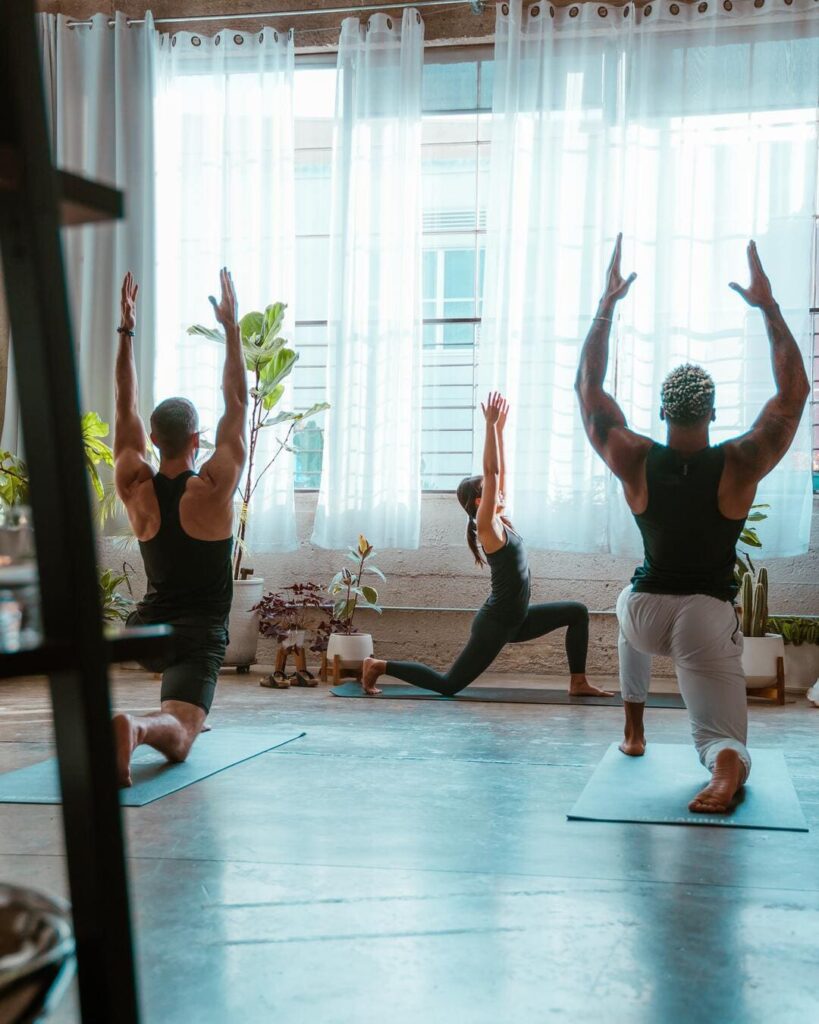
Getting Started with Meditation
One of the best ways to achieve mindfulness is through meditation. Meditation can be done anywhere, at any time, and it doesn’t have to be for a long period of time. Even a few minutes of meditation can help to reduce stress and improve your overall sense of well-being.
If you’re new to meditation, many resources are available to help you get started, including books, apps, and online courses. Meditation sessions can be accessed online, by phone, or in person.
There are many different approaches to meditation, some of which involve focusing on the breath, a mantra or candle flame (concentration type) and others in which you don’t focus at all, but rather “let go” and allow everything to unfold without involvement or fixation. In either type, through practice you can find increasing levels of ease, flow, and equanimity.
Meditation can also involve breathing exercises, visualization, and other relaxation techniques. You may find it helpful to meditate in nature, using the peaceful surroundings to center yourself.
Guided meditation is beneficial when you’re just getting started. You can find many different apps for guided meditations by searching in the app store on your phone. The VA’s Whole Health library also has guided meditation audio files you can download.
Many non-profit resources are dedicated to helping veterans learn about meditation, including Warrior At Ease. Their virtual library offers both free yoga and meditation sessions.
Mindfulness Coach App
The Mindfulness Coach App helps veterans with anxiety and depression by reducing stress, increasing self-awareness, and improving emotional balance. The app has a variety of meditation techniques and a few topics to read to understand more about the importance of mindfulness. This app is free for anyone.
Spend Time in Nature
Nature is one of the best ways to calm anxiety and improve depression. Research has shown that exposure to green space has a tremendous impact on the brain and our mood. Nature can help to reduce stress hormones, increase feelings of happiness and calmness, lower blood pressure, improve attention span, and boost neurotransmitters. In addition, exposure to nature can help to boost the immune system and promote better sleep.
A few ideas to help you get outside include:
- Take advantage of any parks or green spaces near you. Take a long walk or run in a park, or even just have a picnic lunch there. Just a few minutes surrounded by trees and plants can work wonders.
- Try to get outside as much as possible during your everyday routine.
- A quick morning walk is a great way to start your day off right, and adds the benefit of early exposure to “blue light” which additionally supports healthy circadian rhythms for better sleep.
- Plan a short day trip to a state or national park. Many of these offer free or reduced entry for veterans and service members.
- Join a veteran expedition. If you have the time, you can sign up for a free trip in nature with Outward Bound. This organization offers everything from backpacking trips to kayaking and whitewater rafting.
For people struggling with anxiety, depression, or PTSD, nature can offer a much-needed respite from the challenges of daily life. Get outside today!
Acupuncture
Acupuncture is a form of traditional Chinese medicine that has been used for centuries to treat a variety of conditions. While the exact mechanisms are still being studied, evidence shows acupuncture can safely and effectively treat chronic pain, anxiety, and depression.
One way it works is by activating the body’s self-care systems. The needles used in acupuncture stimulate pressure points connected to the nervous system. This stimulation can help release endorphins, which are natural painkillers that also have mood-boosting effects.
In addition, acupuncture can help regulate the body’s stress hormone levels, leading to a reduction in anxiety and stress. For people struggling with depression, acupuncture may help improve sleep and appetite, two factors that can play a role in symptom severity.
Free Acupuncture Through the VA
To receive acupuncture through the VA, you must be enrolled in VA healthcare and get a referral from your primary care provider. Once you have a referral, you can schedule an appointment with a licensed acupuncturist. The VA will cover 100% of the cost. To find an acupuncturist covered near you, use the Find VA Locations tool to search for an in-network community care provider.
If you’re interested in exploring this natural form of medicine, speak to your primary care provider about getting a referral for acupuncture services through the VA.
Service Dogs
Service dogs can have a profound impact on the lives of veterans. When most people think of therapy, they think of traditional methods like talk therapy or medication. However, research has shown that spending time with a service dog or therapy dog can positively affect mental health.
One VA study found that veterans with PTSD who spent time with service dogs had lower levels of anxiety and depression and felt more hopeful about the future.
While service dogs are trained to help people with disabilities, therapy dogs provide comfort and affection. Both can provide much-needed companionship and unconditional love. They can help veterans feel more connected and less isolated. Dogs offer a non-judgmental listener for those struggling with mental health.
In addition, service dogs can help veterans feel more comfortable seeking out self-care activities such as exercise and socializing.
Read our post about organizations that help pair veterans with service dogs to learn more.
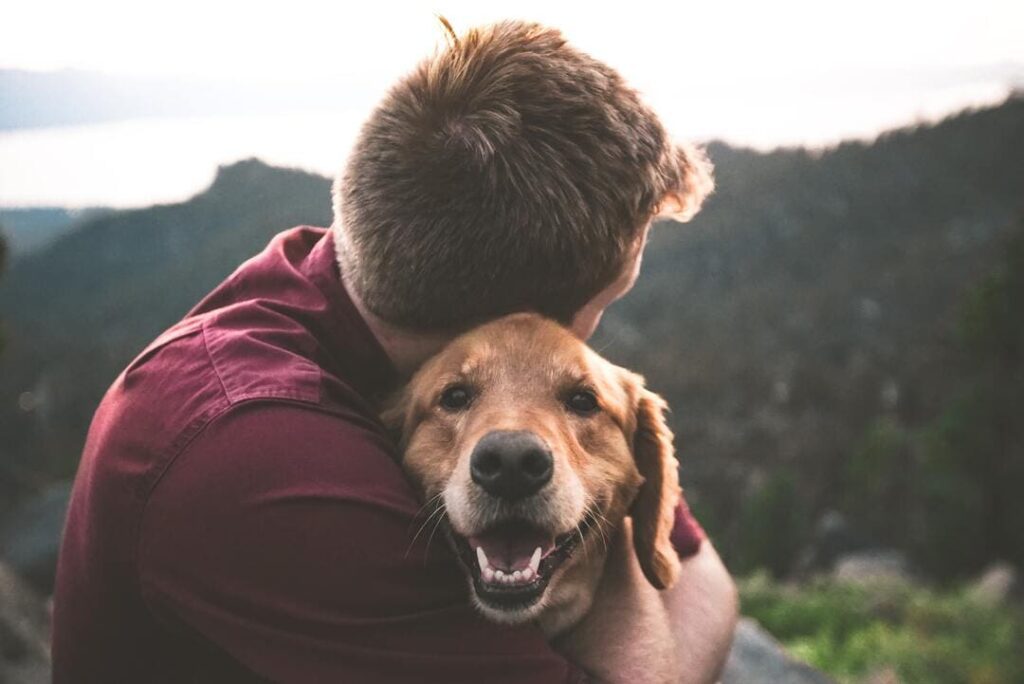
Getting the VA Benefits You Deserve
Most veterans are underrated for their disabilities and therefore not getting the compensation they’re due. At VA Claims Insider, we help you understand and take control of the claims process, so you can get the rating and compensation you’re owed by law.
Our process takes the guesswork out of filing a VA disability claim and supports you every step of the way in building a fully-developed claim (FDC)—so you can increase your VA rating.
If you’ve filed your VA disability claim and have been denied or have received a low rating—or you’re unsure how to get started—reach out to us! Take advantage of a FREE VA Claim Discovery Call. Learn what you’ve been missing—so you can FINALLY get the disability rating and compensation you deserve!
About the Author

About VA Claims Insider
VA Claims Insider is an education-based coaching/consulting company. We’re here for disabled veterans exploring eligibility for increased VA disability benefits and who wish to learn more about that process. We also connect veterans with independent medical professionals in our referral network for medical examinations, disability evaluations, and credible independent medical opinions and nexus statements (medical nexus letters) for a wide range of disability conditions.

